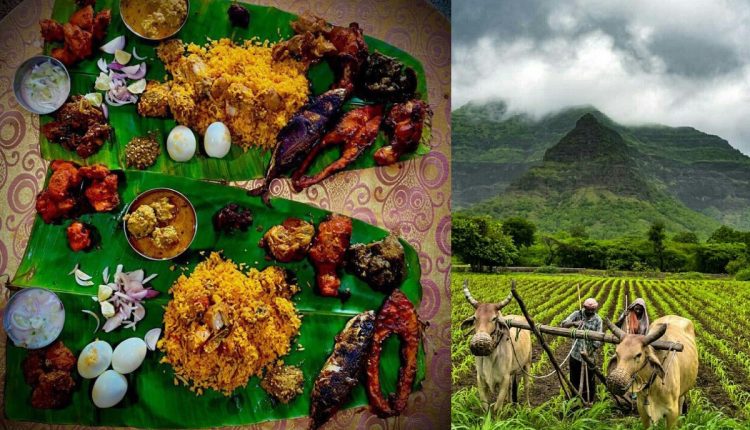Farm-to-Fork Escapes: The Rise of Eco-Luxury Food Getaways in India
For decades, luxury travel was defined by excess — the grander the buffet, the more opulent the experience. But in 2025, a quiet revolution is reshaping the idea of indulgence. Travelers now seek authenticity over abundance, sustainability over spectacle. Welcome to the world of farm-to-fork escapes — where food is not just served, but grown, harvested, and celebrated right where you stay.
Across India, a new generation of eco-luxury retreats is blending comfort with conscience. From organic farms in the Himalayas to spice plantations in Kerala, these hideaways invite guests to reconnect with nature — one fresh, homegrown meal at a time.
The Slow Luxury Movement
“Slow” is the new luxury. In an era of fast everything — food, fashion, and even travel — slowing down has become an act of elegance. Farm-to-fork stays embody this philosophy, offering experiences that are immersive, intentional, and intimate.
Here, travelers trade five-star buffets for freshly plucked produce, curated local menus, and meals that tell the story of their surroundings. You might spend your morning helping harvest greens in a Sikkimese garden and your evening tasting them in a Himalayan stew under the stars.
This mindful rhythm — eating what grows, savoring what’s near — is redefining how modern travelers experience India.
India’s Farm-to-Fork Hotspots
1. Uttarakhand’s Mountain Kitchens
Nestled among pine-covered slopes and wild herbs, boutique lodges in Uttarakhand are pioneering the slow-food lifestyle. Guests dine on mandua rotis, bhat ki churkani, and herbal teas brewed from local rhododendrons. Every ingredient tells a story of altitude, weather, and tradition.
2. Coorg’s Spice-Scented Estates
In Karnataka’s misty hills, farm resorts like Evolve Back and Tamara Coorg curate culinary journeys through coffee and spice plantations. Guests roast their own beans, learn about native peppers, and dine amidst cardamom groves — the aroma of authenticity lingering long after checkout.
3. Kerala’s Backwater Bounty
Eco-resorts in Kumarakom and Wayanad take the farm-to-fork promise seriously — serving freshly caught fish, hand-pounded spices, and vegetables grown on site. Guests can visit nearby paddy fields, join cooking sessions, or even enjoy candlelit dinners on floating decks.
4. Punjab’s Countryside Heritage Stays
In the heart of India’s granary, heritage farm stays offer sarson da saag made from their own fields, paired with makki di roti fresh off the chulha. Here, food is not an amenity — it’s an inheritance shared with guests.
Luxury with a Conscience
Eco-luxury is not about giving up comfort; it’s about elevating experience. These farm retreats focus on thoughtful design — cottages built from reclaimed wood, solar-powered kitchens, and biodegradable amenities. The idea is to indulge without excess, to experience luxury that doesn’t cost the earth.
Guests are encouraged to connect with local farmers, artisans, and cooks — understanding the delicate ecosystem that sustains their meals. This exchange fosters awareness, gratitude, and a sense of belonging that no hotel buffet can replicate.
The Local-to-Global Plate
One of the most fascinating aspects of India’s farm-to-fork escapes is how they reinterpret traditional recipes for modern palates. Chefs are experimenting with heritage grains, forest produce, and forgotten spices to craft dishes that are both rooted and refined.
For instance, an eco-lodge in Meghalaya might serve smoked pork with bamboo shoot risotto, while a Tamil Nadu retreat could reinvent millet dosas with farm-fresh chutneys. It’s a culinary dialogue between old and new — where sustainability meets sophistication.
Wellness, the Natural Way
Food at these retreats goes hand-in-hand with holistic wellness. Most farm-to-fork destinations integrate yoga, nature walks, and spa therapies using local herbs and oils. The goal isn’t just to nourish the body, but to restore balance.
At an Ayurvedic eco-stay in Wayanad, guests begin their day with herbal detox drinks before learning to cook sattvic meals. In Ladakh, travelers enjoy high-altitude meditation followed by meals rich in native grains like barley and buckwheat — perfect fuel for the soul.
How Sustainability Shapes Taste
There’s something profoundly satisfying about tasting food that hasn’t travelled miles to reach your plate. Locally sourced ingredients retain freshness, flavor, and nutritional value — creating a dining experience that feels honest.
Farm-to-fork travel also cuts down carbon footprints, supports regional farmers, and preserves indigenous crops. It’s a full-circle model — one that nourishes both the traveler and the land.
The New Traveler’s Appetite
Today’s travelers, especially millennials and Gen Z, are increasingly choosing purpose-driven holidays. They crave experiences that align with their values — sustainability, health, and connection.
Instagram feeds may capture the visuals, but what lingers is the story behind the food — who grew it, how it was made, and what it represents. This emotional connection is what’s turning farm-to-fork retreats from niche escapes into mainstream luxury travel.
From Experience to Education
Many eco-luxury stays now go beyond hospitality — they act as living classrooms. Guests can learn composting, organic farming, and traditional cooking. Children can interact with farm animals, plant seeds, or understand the cycle of food production.
It’s not just about vacation anymore; it’s about transformation. Travelers leave with more than memories — they carry a renewed respect for the soil, the farmers, and the quiet labor that fills their plates.
The Takeaway: Redefining Luxury Through Simplicity
India’s farm-to-fork escapes remind us that true luxury isn’t in abundance — it’s in authenticity. It’s the taste of a freshly plucked tomato, the smell of rain on fertile earth, and the joy of sharing a meal that began just a few steps away.
As sustainable travel continues to rise, these experiences are leading a quiet revolution — one that’s delicious, ethical, and deeply human. Because when food comes straight from the land, every bite feels like home.


Comments are closed.